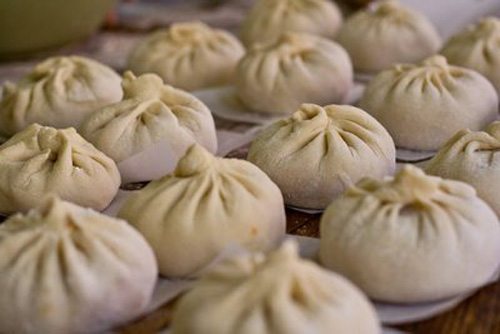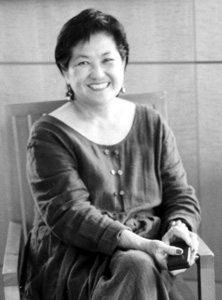
IN CHINA
In China I thought I was home
The land of my father’s and my mother’s birth
In China, in Beijing, my eyes seized the brown sky,
The young men and women in white shirts and dark pants
Greeting me, a stranger, wearing a jade heartIn China, in Nanjing, I walked across a bridge
In the midnight blue night, inhaling the odor of dung,
The sweet osmanthus as a farmer pulled his cart
Of vegetables, the donkey with half-opened eyesOh, China, I wanted you to embrace me, a daughter
Returning, a daughter whose parents lived longer
In Oakland than in the village of Goon Do Hahng
Where my sisters walked miles to schoolIn China, in Shanghai, I ate bao zhi off a cart,
Walked along the Bund among crowds, slipped
Into conversation with workers at a factory
Who desperately wanted to practice EnglishOh, China, you surrounded me with singers in the park,
With uncles and aunts riding bicycles, an old woman staring
At my Chinese face, questioning my presence, our worlds apart
Because I could not speak MandarinIn China, in Toishan City, in Guangzhou, my hosts feted me
With a banquet of fragrant melon soup,
mountain cat, garlic shoots
And candy shaped as miniature apples, pears and oranges
All the while my Chinatown ToishanWah emerging as songOh, China, you, my parents’ motherland, whose women
Were fighting for socialist reconstruction, whose cadre exhorted
That feminism was a product of decadent capitalist society
Who denied that my sisters had no battles as womenIn China, I was an American stepping onto the land
Meeting my 90-year-old aunt who rose from her bed
To take pictures with a stranger, whose daughter-in-law carried
Her baby on her back in a beah, while she cooked cabbage for dinnerIn China, I was forever American who could not go home
 Nellie Wong
Nellie Wong
is a poet and revolutionary feminist activist living in San Francisco. She was born in 1934 in Oakland, California, the first U.S.-born daughter of Chinese immigrants. Wong’s first collection of poetry, Dreams in Harrison Railroad Park (1977), was published by Kelsey Street Press. This book went through four printings and was the most successful release in the history of Kelsey Street Press. Her other titles are The Death of Long Steam Lady (1986), published by West End Press and Stolen Moments (1997). Her work has appeared in approximately 200 anthologies and publications. Wong writes directly from her working life as well as from her family history, bridging China and Asian America. Her poetry spans issues of feminism, the fight against racism, workplace injustice, and finding identity as a writer and activist.